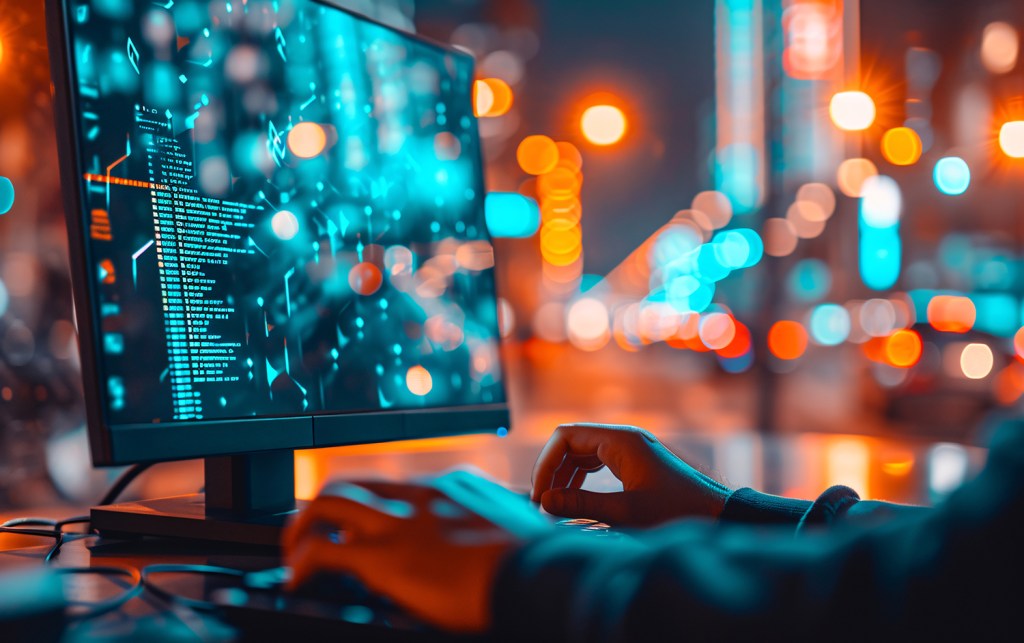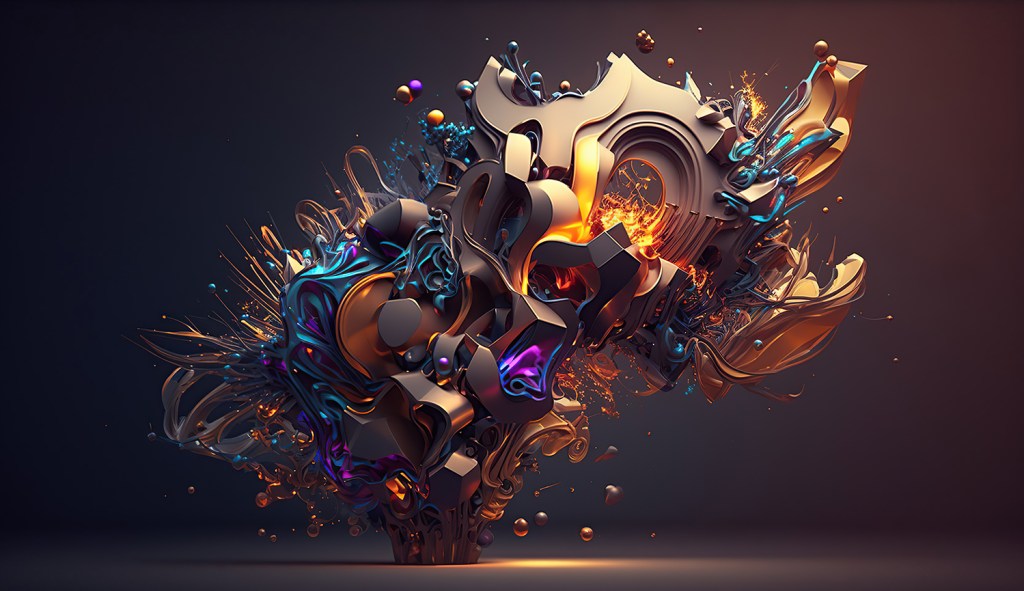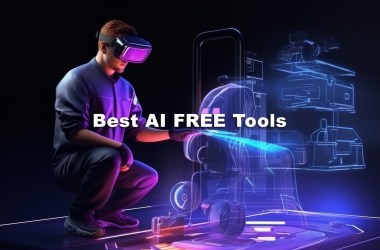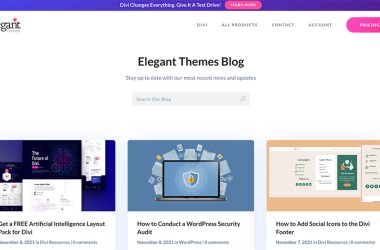Updated: Aug 29, 2024 By: Marios

Digital technology continues its rapid ascent, which has been hyper-fueled by the emergence of limited forms of artificial intelligence across various sectors.
This is most visible when it comes to website design and development, where AI’s ability to analyze, learn, and adapt has brought us into a new era where anyone can build a website easy as pie, with unprecedented sophistication and efficiency, including people who have no coding skills but a mind for design.
We spoke to experts from the hosting company one.com to explore the profound impact AI is having on the website development industry and the transformative effects on design, SEO, user experience, development, and more.
Exploring AI For Design

The design process has always relied on the creative intuition of human designers to account for aesthetics, user psychology, and technical challenges. However, significant enhancements from evolving AI tools have supercharged the process.
AI-driven design tools leverage large datasets to offer recommendations and insights that were previously harder to craft. For instance, platforms like Adobe Sensei use AI to provide designers with data-driven insights that enhance the creative process and effectively engage users.
Furthermore, AI-driven design tools are now capable of generating entire website layouts based on a few user inputs, and with pattern recognition, developers struggle less with design best practices.
From the start of the software development lifecycle, developers can design for user engagement.
AI-Powered Development Tools
The development phase of website creation is equally transformed by AI-powered website builder technology and code generation for speedy custom development.
Another one of the most impactful ways AI has supercharged development is through testing and quality assurance (QA). Human developers work on their projects much faster when they do not have to check everything themselves and outsource QA.
Bug detection, predicting issues before they emerge, and suggesting solutions are just some of the capabilities these platforms offer.
An example would be the frameworks Selenium and Test.ai, which use machine learning to adapt to new testing scenarios and learn from historical data to improve efficiency and accuracy. It reduces the time required for manual testing and can refine the product further by detecting the most subtle bugs one might miss during a manual check.
AI has also played a crucial role in expanding code generation capabilities, with platforms like GitHub Copilot capable of generating entire codebases from simple natural language prompts.
With extra time on their hands, developers can focus on more complex and creativity-driven tasks such as architecture design and system integration. The result is a more efficient development process that can offer significant benefits, such as reduced time to market for startups.
Enhancing User Experience (UX) With AI

User experience refers to the overall experience a user has when interacting with a product, system, or service. It encompasses aspects such as perceptions, emotions, and responses before, during, and after use.
This includes site usability, accessibility, desirability, findability, credibility, and usefulness. The trend, even before AI, was arguably personalization, which has the effect of making every user feel special and like the website is made for them.
However, this was time-consuming and required manual analysis and segmentation. Today, AI can do all this in real-time by tracking user interaction with a website and identifying patterns and trends that inform design and content.
For example, AI can determine which sections of a website users spend the most time on, which elements they click on most frequently, and which pages have the highest bounce rates. With such insights, you can better meet user expectations as a developer/designer.
Additionally, AI can create adaptive user interfaces that change based on user behavior. These interfaces can change their layout, content, and even functionality in real-time to deliver a more dynamic and engaging user experience.
E-commerce websites can benefit greatly from this, given the market sees user preferences change and evolve rapidly based on browsing history, seasonal trends, and purchase behavior.
The Impact on SEO

Ranking high on search engines is the cornerstone of digital marketing. AI is now revolutionizing this field with tools that offer deeper insights and more accurate predictions than ever before.
Traditionally, SEO strategies rely heavily on keyword research, link building, and content optimization for lead generation, which can be time-consuming and prone to human error.
AI can automate these processes and ensure that they are carried out with greater precision and efficiency. One of the most significant advancements in AI-driven SEO is the use of natural language processing to understand user intent.
Search engines like Google have over time tweaked their algorithms to understand user context and intent instead of just matching keywords.
Aided by tools such as Clearscope and MarketMuse, SEO specialists can analyze search queries and deliver recommendations on optimizing content to meet new search engine criteria. Moreover, AI can help businesses stay ahead of SEO trends by predicting changes in search algorithms.
Businesses can now proactively adjust their SEO strategies to maintain their ranking amid search algorithm evolution.
AI For Content Creation
From images to videos to articles, AI can now speed up the creative process. Tools like GPT-4 can produce high-quality content that takes context, tone, and style into account, ensuring a coherent, relevant, and engaging result.
However, while AI-generated content can be useful, it is increasingly viewed as slop, especially when used carelessly and frivolously. AI still struggles with nuanced topics that need deep domain knowledge or creative storytelling.
Therefore, the most effective way to leverage AI for content creation is via hybrid arrangements that use AI to speed up human creativity instead of trying to replace it. Most people don’t like those glossy-looking images, the flawless but soulless articles, and other artificial bits that lazy or scummy websites have gone full-in on.
The benefits do not stop with speeding up content creation by helping with research and ideation; they extend to audience analysis to determine the best times to publish content, the most effective channels for distribution, and the types of content likely to resonate with the target audience.
The rest of the process benefits greatly from human creativity. With this level of optimization, users can significantly increase their reach and impact while maintaining a human connection with their audience.
Ethical Considerations and Challenges of AI Integration
While using AI, it is worth considering the ethics and challenges it presents. They include factors such as:
- Job displacement concerns
- Data privacy issues
- Bias in AI systems
- Transparency and accountability
- Copyright and intellectual property claims
- Human creativity vs AI assistance
- User trust
The concerns and challenges evolve as AI evolves and continues to impact the industry in new ways. Organizations that integrate it into their operations must stay informed to leverage it in the best way possible.
AI is Here To Stay
Most organizations must figure out how to work with AI; it is more than just a buzzword. From automating routine tasks to providing deep insights into user behavior, the technology offers a wealth of opportunities for businesses to enhance their online presence and remain competitive in a rapidly evolving digital landscape.
However, they must also approach it with a balanced perspective, recognizing its potential benefits and pitfalls. By doing so, businesses can harness the full power of AI while remaining ethical, responsible, and forward-thinking.



